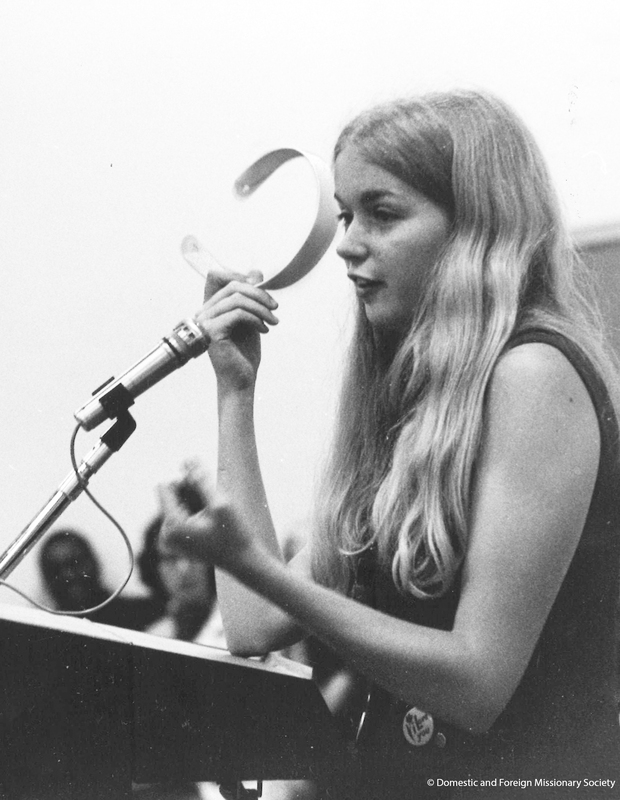1970 Convention
The Joint Commission on Ordained and Licensed Ministries recommended in their 1970 report that all three Orders, the diaconate, the priesthood, and the episcopacy, be opened to women. While the diaconate was opened to women at General Convention that year, a resolution affirming "that women are eligible" for the priesthood and episcopate failed in the House of Deputies. Though supporters of women's ordination were disappointed, they were not discouraged, and in the following two triennia they set to work to realize their dream of equality.
Though the debate about women's ordination carried on in nearly every corner of The Episcopal Church's wide network of publications and media outlets, fundamentally, the decision lay with the two Houses of General Convention. The 1970 Triennial meeting of the Episcopal Church Women, though intensely concerned with the matter, could only send recommendations, observe, and wait for the verdict.
On the Sixth Day of the 1970 General Convention, held in Houston, Texas, the Committee on Theological Education of the House of Deputies recommended the adoption of HD #41, which would “affirm that women are eligible to seek and accept ordering to the diaconate and the priesthood and to be ordained and consecrated to the episcopate.” The Journal of Convention notes that “the matter was debated at great length” on the legislative floor, representing just a portion of the vast debate which had been raging around the issue for months in advance of Convention.
A substitute resolution was introduced, removing any approval of women’s ordination and instead charged the church to bring the question “to the widest Anglican and ecumenical discussion and debate during the next triennium, including the Anglican Consultative Body.” Deputies also urged that the matter should be presented to the churches with whom PECUSA was seeking unity, including the Roman Catholic and Orthodox churches. After a long debate, a vote was taken on the substitution, and it was defeated. A vote by orders on the original resolution was taken and passed by the lay deputies, but it failed to pass the clergy. Proponents of women’s ordination would have to regroup and turn their energies towards the next meeting, slated for 1973 in Louisville, Kentucky.


